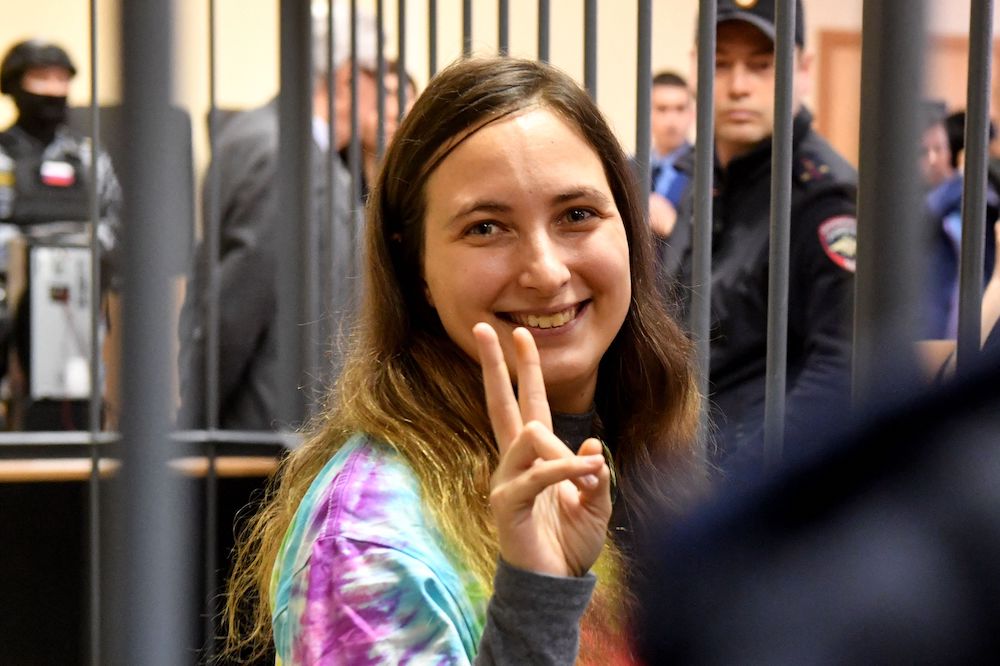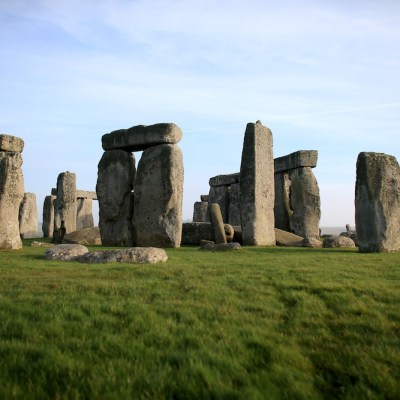The Russian artist Aleksandra Skochilenko was released on Thursday as part of a prisoner exchange between Russia and several other countries, reports the Art Newspaper. In November 2023, after a year-long trial, Skochilenko was sentenced to seven years in prison after being found guilty of spreading disinformation about the Russian invasion of Ukraine. The artist had replaced price tags in a supermarket in St Petersburg with labels that criticised the war. (One of the labels read: ‘The Russian army bombed an art school in Mariupol. About 400 people were hiding in it from shelling.’) Skochilenko’s release was confirmed by her partner. The exchange of 15 prisoners held in Russia and another in Belarus for eight held in the United States, Norway, Germany, Poland and Slovenia is the largest of its kind since the collapse of the Soviet Union. Among those released is the Wall Street Journal reporter Evan Gershkovich. However, many political prisoners, including the journalists Natalya Filonova and Maria Ponomarenko and the opposition politician Aleksei Gorinov, remain in Russian jails. Skochilenko told the BBC that she was ‘in shock’ and ‘on adrenaline’ and said, ‘This is the happiest day of my life.’
The UK government has scrapped the Stonehenge road tunnel. After years of legal challenges, the new Chancellor of Exchequer has cancelled the controversial plan to divert the A303 motorway into a tunnel near the ancient monument in Wiltshire. The termination of the £2bn project comes as part of other cuts to infrastructure projects due to a ‘black hole’ in the public finances. The project’s supporters, which include the head of English Heritage, argued that the tunnel would have significantly eased congestion on A303, and that concerns about archaeological damage were overstated. Wiltshire Council said that it was ‘extremely dismayed and disappointed’ by the cancellation of the project.
More than 750 artists and public figures have signed an open letter accusing the Royal Academy of Arts in London of ‘anti-Palestinian censorship’. The Royal Academy (RA) withdrew two works from its Young Artists’ Summer Show after the Board of Deputies of British Jews wrote to the institution, alleging that the art in question contained ‘anti-semitic tropes and messaging’. Among the signatories of the letter, which was published by Artists for Palestine UK, are Nan Goldin, Adam Broomberg, Brian Eno, Asif Kapadia and a number of Royal Academicians. The letter argues that ‘British arts institutions have the ethical, historical and legal duty to uphold freedom of expression’. The RA issued a statement saying that it ‘should not have chosen to display two works that relate to the Israel/Palestine conflict’, adding that ‘an exhibition for young people and children aged 4 to 19, without opportunity for real context and discussion, is not an appropriate environment to invite volatile public discourse’.
Bonhams has appointed Chabi Nouri as its new global CEO, reports Artnews. She succeeds Bruno Vinciguerra, who served as chief executive from 2018 until February this year. Bonhams did not give a reason for his departure. Nouri arrives from the Swiss private bank Mirabaud Group, where she is a private equity partner. She was previously CEO of Piaget, part of the Richemont group, between 2017 and 2021. Asked whether Nouri would expand Bonhams’ interests in the luxury goods sector, a spokesperson told the Art Newspaper: ‘Nouri has enormous experience in the luxury field and will doubtlessly explore this area when she arrives in post in October.’ Bonhams has been owned by the private equity firm Epiris since 2018.
The American Museum of Natural History (AMNH) in New York has repatriated the remains of 124 Native Americans as well as 90 artefacts. It follows what the museum’s president Sean Decatur described as ‘more than 400 consultations, with approximately 50 different stakeholders, including hosting seven visits of Indigenous delegations’. Earlier this year, the museum announced its intention to return the remains of 2,200 Native Americans and thousands of Native funerary objects. The decision came after major revisions in January to the Native American Graves Protection and Repatriation Act (NAGPRA) (1990). Before the changes, to the act, museums were able to delay repatriation by several means, including labelling certain Native items as ‘culturally unidentifiable’, ProPublica reported in 2023.
In more restitution news, the Fowler Museum at UCLA has returned 20 objects to the Warumungu people in Australia. The handover ceremony took place on 24 July, reports the Art Newspaper, and was attended by representatives of the Australian Institute of Aboriginal and Torres Strait Islander Studies (AIATSIS), a government agency that searches internationally for Indigenous artefacts to be repatriated. The objects will ultimately be shipped to the Nyinkka Nyunyu Arts and Culture Centre in Tennant Creek in the Northern Territory of Australia. In February this year, the Fowler Museum repatriated seven Asante artefacts to Ghana.
UNESCO has added 26 new sites to its World Heritage list. These include 20 cultural sites, such as a series of outdoor sculptures by Constantin Brancusi in south-west Romania. The Via Appia, an 800km road that was built to connect Rome to Capua, near Naples, and later extended to the city of Brindisi, was also added to the list. It was constructed from the 4th century BC to the 4th century AD. Other new inscriptions include the abandoned city of Gedi in Kenya and two sites in the Ethiopian highlands, which, according to UNESCO, contain footprints that ‘testify to the area’s occupation by the hominin groups from two million years ago’. UNESCO has also given $235,520 to Colombia, Mauritius, Laos and Tanzania to finance new conservation work in those countries.



